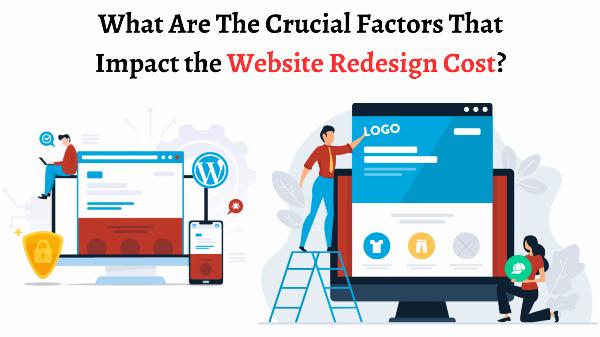15 Sentences That Reveal Someone Is Carrying Unhealed Trauma
 Yahoo is using AI to generate takeaways from this article. This means the info may not always match what's in the article. Reporting mistakes helps us improve the experience.Generate Key Takeaways
Yahoo is using AI to generate takeaways from this article. This means the info may not always match what's in the article. Reporting mistakes helps us improve the experience.Generate Key TakeawaysWhen it comes to unhealed trauma, it often shows up in ways you might not expect. Sometimes, it's in the words people use every day. You might not even realize you're revealing something about yourself. Here are 15 sentences that could be signs of unhealed trauma. They don't always scream "trauma," but they do whisper it, giving clues about what might be going on beneath the surface.
1. "I'm Fine, Really."
 Shutterstock
ShutterstockThis phrase becomes a default response, often used to avoid deeper conversation. People with unhealed trauma might say this because they fear vulnerability or judgment. They may have learned that sharing their emotions didn't lead to support in the past. So, saying “I’m fine” shuts the door to potential pain, keeping them safe from probing questions. According to psychologist Dr. Lisa Firestone, people often use these words to mask their true feelings, signaling a reluctance to open up about emotional wounds.
On the other hand, this sentence can also signal a lack of self-awareness. They might truly believe they’re fine because they’ve compartmentalized their feelings so well. Years of pushing emotions aside can lead to a numbing effect, where they can't clearly identify what they’re truly feeling. This makes it hard for them to connect authentically with others, limiting their relationships. The cycle continues until they feel safe enough to truly explore their emotions.
2. "I Don't Deserve This."
 Shutterstock
ShutterstockThis sentence often creeps up when something good happens to them, showing a deep-seated belief of unworthiness. You might hear this from someone who’s been told they’re not enough, or worse, someone who’s been made to feel like they’re a burden. They tend to sabotage their success or happiness because deep down, they don’t believe they’re worthy of it. It can create a cycle where even positive experiences are marred by self-doubt and guilt.
AdvertisementAdvertisement#_R_52bckr8lb2mav5ubsddbH1_ iframe AdvertisementAdvertisement#_R_92bckr8lb2mav5ubsddbH1_ iframeThis mindset can stem from early childhood experiences where love and praise were conditional. As adults, they may find it difficult to accept kindness or compliments without suspicion. It’s like they’re waiting for the other shoe to drop, always expecting to be let down. This constant vigilance can be exhausting, both for them and those around them. Healing often begins with recognizing the value they inherently possess, independent of others' opinions.
3. "I Don't Care."
 Shutterstock
ShutterstockWhen someone says, "I don’t care," it could indicate emotional withdrawal. Often, it’s a shield against disappointment or rejection. Psychologist Dr. Guy Winch notes that this kind of detachment can result from past experiences where caring led to being hurt or let down. By pretending not to care, they attempt to protect themselves from future pain. This can create a barrier to meaningful relationships, as genuine connections require emotional investment.
In some cases, "I don’t care" becomes a mantra to convince themselves that they’re unaffected. It’s a way to rationalize their feelings, convincing themselves they’re strong for not caring. However, it’s usually a temporary fix that doesn’t address underlying emotions. Avoidance isn’t healing—it’s a way to numb oneself against the impact of unhealed trauma. Real healing involves facing those emotions head-on, even if it’s uncomfortable.
4. "I'm Used To It."
 Shutterstock
ShutterstockWhen someone frequently says, "I’m used to it," they’re implying that they’ve come to expect certain negative patterns in their life. This statement can reveal a history of repeated disappointments or struggles. It’s a resignation to circumstances, often signaling an internalized belief that things won’t get better. This mindset can lead to a lack of motivation to change or improve their situation. By accepting hardship as the norm, they may limit their potential for growth and happiness.
AdvertisementAdvertisement#_R_54jckr8lb2mav5ubsddbH1_ iframe AdvertisementAdvertisement#_R_94jckr8lb2mav5ubsddbH1_ iframeOn another level, it’s a way of coping with the predictability of their circumstances. When life consistently mirrors past traumas, it feels safer to stick with the familiar. Even if it’s unpleasant, it’s at least something they know how to navigate. This can create a comfort in discomfort, making it harder to take risks or embrace change. Overcoming this mindset often requires a shift in perspective, recognizing that change is possible and that they deserve better.
5. "I Can't Trust Anyone."
 Shutterstock
ShutterstockThis sentence is a big red flag for unhealed trauma, often rooted in past betrayals or broken trust. It’s a defense mechanism to shield themselves from potential harm, even if it means isolation. Dr. Brene Brown, a researcher known for her work on vulnerability, highlights that trust is foundational for connection, and a lack of it can lead to loneliness and insecurity (source: BreneBrown.com). Without trust, building meaningful relationships becomes a daunting task. The walls they’ve built make it hard for others to get close, often leaving them feeling disconnected.
These defenses might have been necessary at some point in their lives, but they can become barriers to healing. When you don’t allow yourself to trust, you miss out on the support and connection that can aid recovery. It’s a self-fulfilling prophecy: expecting betrayal keeps genuine connections at bay. To heal, one must slowly dismantle these walls, allowing oneself to be vulnerable in safe, supportive environments. Rebuilding trust takes time, but it's essential for healing.
6. "It's Whatever."
 Shutterstock
ShutterstockThis phrase often suggests indifference, but it can mask deeper feelings of hurt or frustration. People who use it frequently might be trying to minimize their emotions to avoid conflict or rejection. It’s a way to dismiss their own needs and desires, often learned from environments where expressing oneself led to negative consequences. By saying “it’s whatever,” they take the path of least resistance, avoiding confrontation at the cost of their own authenticity.
AdvertisementAdvertisement#_R_56rckr8lb2mav5ubsddbH1_ iframe AdvertisementAdvertisement#_R_96rckr8lb2mav5ubsddbH1_ iframeUnderneath this dismissive phrase often lies a fear of being too much or being rejected. They’ve learned to lower their expectations as a way to cope with repeated disappointments. While it might seem like a form of self-protection, it often results in feelings of emptiness and dissatisfaction. Addressing these feelings requires acknowledging their own needs and learning to express them honestly. Only then can they begin to form deeper, more authentic relationships with others.
7. "Why Bother?"
 Shutterstock
ShutterstockThis question can indicate a sense of hopelessness or defeat, often stemming from unhealed trauma. It reflects a mindset where effort seems pointless because past experiences have led to disappointment. Dr. Martin Seligman, known for his work on learned helplessness, observed that when people repeatedly face negative outcomes despite their efforts, they often stop trying. This resignation can hinder personal growth and contribute to a sense of stagnation.
When someone says "why bother," it often means they’ve lost sight of their own agency. They might feel trapped in a cycle where nothing they do seems to make a difference. It’s a mindset that can be hard to break, especially when fueled by past traumas. The key to reversing this thinking often lies in small successes that rebuild confidence over time. By setting and achieving small, manageable goals, they can begin to see that their efforts do, in fact, matter.
8. "I Always Mess Things Up."
 Shutterstock
ShutterstockThis sentence often reveals a deep-seated belief in personal inadequacy and failure. It’s a sign that past mistakes or failures have left a lasting impression, shaping their self-perception. They might feel like they’re doomed to repeat these mistakes, leading to a cycle of self-sabotage. This mindset can be paralyzing, stopping them from trying new things or taking risks. Instead of learning from past experiences, they internalize them as intrinsic flaws.
AdvertisementAdvertisement#_R_593ckr8lb2mav5ubsddbH1_ iframe AdvertisementAdvertisement#_R_993ckr8lb2mav5ubsddbH1_ iframeA belief that they "always" mess up often means they’re focusing on their failures while dismissing their successes. This distorted view can impact their self-esteem and make it hard to trust in their abilities. They may miss out on opportunities for growth and success because they’re afraid of making mistakes. To shift this mindset, they need to start recognizing and celebrating small wins and reframing failures as learning experiences. Building self-compassion is a crucial step in overcoming this self-defeating belief.
9. "I Just Want To Be Alone."
 Shutterstock
ShutterstockWhen someone frequently expresses the desire to be alone, it might be more than just needing some personal space. It can be a sign of emotional withdrawal, often used as a way to protect oneself from further hurt. Solitude provides a safe environment where they’re free from judgment or expectations. While alone time is healthy, an excessive desire for isolation can indicate unresolved trauma. It’s important to distinguish between healthy solitude and avoidance of meaningful connections.
For those with unhealed trauma, being alone can feel like the only way to regain control over their emotions. Past experiences might have taught them that others can’t be trusted or will only lead to disappointment. By isolating themselves, they avoid the risk of being hurt again. However, this can lead to loneliness and a lack of support, both of which are critical for healing. Finding a balance between solitude and connection is essential for recovery.
10. "I'll Do It Myself."
 Shutterstock
ShutterstockThis statement often reflects a lack of trust in others, rooted in past experiences where relying on someone led to disappointment. It's a common phrase for those who feel they have to take on everything themselves to ensure it gets done right. While independence can be a strength, when it's fueled by trauma, it can also isolate them from potential support. By insisting on handling everything alone, they may miss out on collaboration and assistance that could ease their burden.
AdvertisementAdvertisement#_R_5bbckr8lb2mav5ubsddbH1_ iframe AdvertisementAdvertisement#_R_9bbckr8lb2mav5ubsddbH1_ iframeWhen someone frequently says, "I’ll do it myself," it might also signal a fear of being let down. They’ve learned to rely solely on themselves because they believe others will fail them. This mindset can prevent them from seeking help, even when they need it. Over time, it becomes a self-fulfilling prophecy, reinforcing the belief that they can't depend on others. Building trust and allowing others in can be a challenging but necessary step toward healing.
11. "Nothing Ever Changes."
 Shutterstock
ShutterstockThis phrase can indicate a sense of hopelessness or despair, suggesting that they feel stuck in an unchanging cycle. They might feel like no matter what they do, their circumstances remain the same. This mindset is often a result of past experiences where efforts to change went unrewarded, leaving them feeling powerless. It can lead to a reluctance to try new things or make necessary changes. Without belief in the possibility of change, they may remain stuck in patterns that no longer serve them.
Feeling like "nothing ever changes" often comes from a history of unmet needs or unacknowledged efforts. It’s a form of learned helplessness, where past failures overshadow any potential for success. This perspective can be intensely demotivating, making progress seem impossible. Shifting this mindset requires recognizing the small changes that do occur and understanding that change is often a gradual process. By focusing on incremental progress, they can start to see that change is possible, even if it takes time.
12. "I Don't Need Help."
 Shutterstock
ShutterstockWhen someone insists they don’t need help, it can be a sign of unhealed trauma where vulnerability led to betrayal. They might feel that admitting they need help is a weakness, making them susceptible to more hurt. This mindset can stem from past experiences where asking for help resulted in disappointment or judgment. While self-reliance is valuable, refusing help can be a barrier to growth and healing. It can lead to feelings of isolation and overwhelm as they try to manage everything alone.
AdvertisementAdvertisement#_R_5djckr8lb2mav5ubsddbH1_ iframe AdvertisementAdvertisement#_R_9djckr8lb2mav5ubsddbH1_ iframeSaying "I don’t need help" can also reflect a fear of burdening others. They might believe they’re not worth the trouble, or that asking for help makes them a nuisance. This belief can be deeply ingrained, making it difficult to break. Healing often requires challenging this mindset and learning that it’s okay to rely on others. Accepting help can be a powerful step toward healing, showing that they don't have to carry their burdens alone.
13. "I Don't Care What You Think."
 Shutterstock
ShutterstockWhile this sentence might project confidence, it often hides insecurities and a fear of judgment. It’s a defense mechanism, a way to protect themselves from criticism or rejection. By asserting that they don’t care, they create a barrier between themselves and potential hurt. However, this can also prevent them from receiving valuable feedback and building deeper connections. True confidence comes from valuing one’s own opinion without dismissing others entirely.
When someone often says, "I don’t care what you think," it might also reflect a history of invalidation. They’ve learned to protect themselves from the opinions of others by pretending not to care. While this can shield them from immediate pain, it also isolates them from potential growth and understanding. This mindset can be limiting, keeping them stuck in a cycle of self-protection rather than self-discovery. Healing involves learning to value both their own perspective and those of others, finding a balance that allows for growth.
14. "I'm Not Good Enough."
 Shutterstock
ShutterstockThis sentence reveals deep insecurity and a lack of self-worth, often tied to past experiences of criticism or failure. It’s a belief that can hold them back from pursuing opportunities or embracing their potential. They might feel like they have to constantly prove themselves, leading to a cycle of perfectionism and burnout. This self-perception can be incredibly limiting, preventing them from recognizing their strengths and accomplishments. It’s a mindset that often requires external validation to feel worthy, which is unsustainable in the long run.
AdvertisementAdvertisement#_R_5frckr8lb2mav5ubsddbH1_ iframe AdvertisementAdvertisement#_R_9frckr8lb2mav5ubsddbH1_ iframeWhen someone believes they’re not good enough, it can stem from internalized messages received over time. It might be the result of critical environments where mistakes were highlighted more than successes. This belief can permeate every aspect of their life, impacting relationships, careers, and personal growth. Overcoming this mindset requires building self-compassion and recognizing inherent worth beyond achievements. By challenging these beliefs and celebrating their strengths, they can start to build a healthier self-image.
15. "I've Heard It All Before."
 Shutterstock
ShutterstockThis sentence often signals a deep-seated skepticism or disbelief, usually rooted in past disappointments. It’s a way of protecting themselves from getting their hopes up only to be let down. This mindset creates a barrier to new experiences or relationships, as they assume the outcome will always be the same. It’s a form of emotional armor, keeping them safe from potential hurt but also distant from potential joy. When someone says, "I’ve heard it all before," it’s often because they’ve experienced repeated letdowns or broken promises.
Such skepticism can prevent them from fully engaging with new opportunities. They might dismiss genuine efforts or overlook the potential for positive change. This mindset can also be exhausting, as it requires constant vigilance and distrust. Healing involves learning to differentiate between past patterns and present possibilities, allowing for a more open approach to life. By embracing the chance for change, they can start to shift their perspective, opening themselves up to new and potentially rewarding experiences.


![India Electric Commercial Vehicle Market [2029] Key Trends and Strategies for Expansion](http://paseban.com/zb_users/upload/2025/08/20250831201809175664268958996.jpg)




![North America Automotive Air Filters Market Trends [2028]- Exploring the Dynamics of Industry](http://paseban.com/zb_users/upload/2025/08/20250831082650175660001038819.jpg)



![Plasticizers Market - A Comprehensive Report [2028]](http://paseban.com/zb_users/upload/2025/08/20250831062111175659247110296.jpg)


